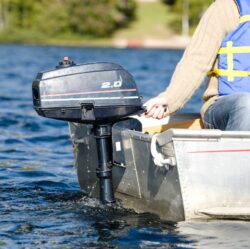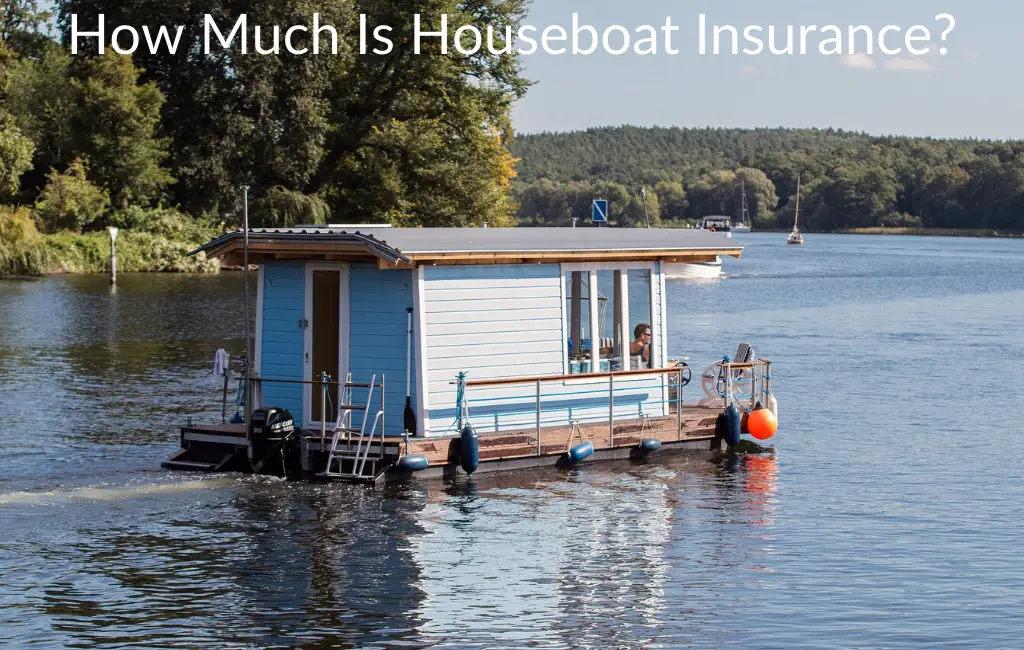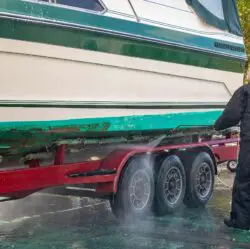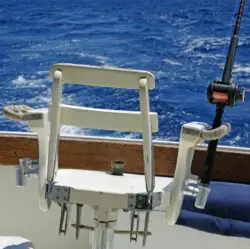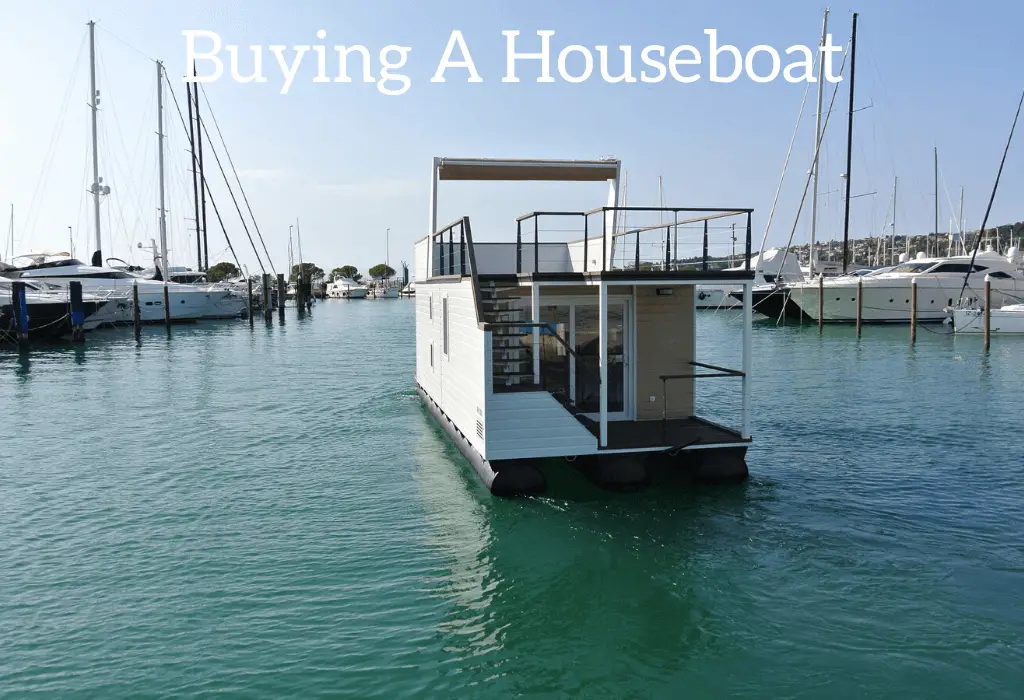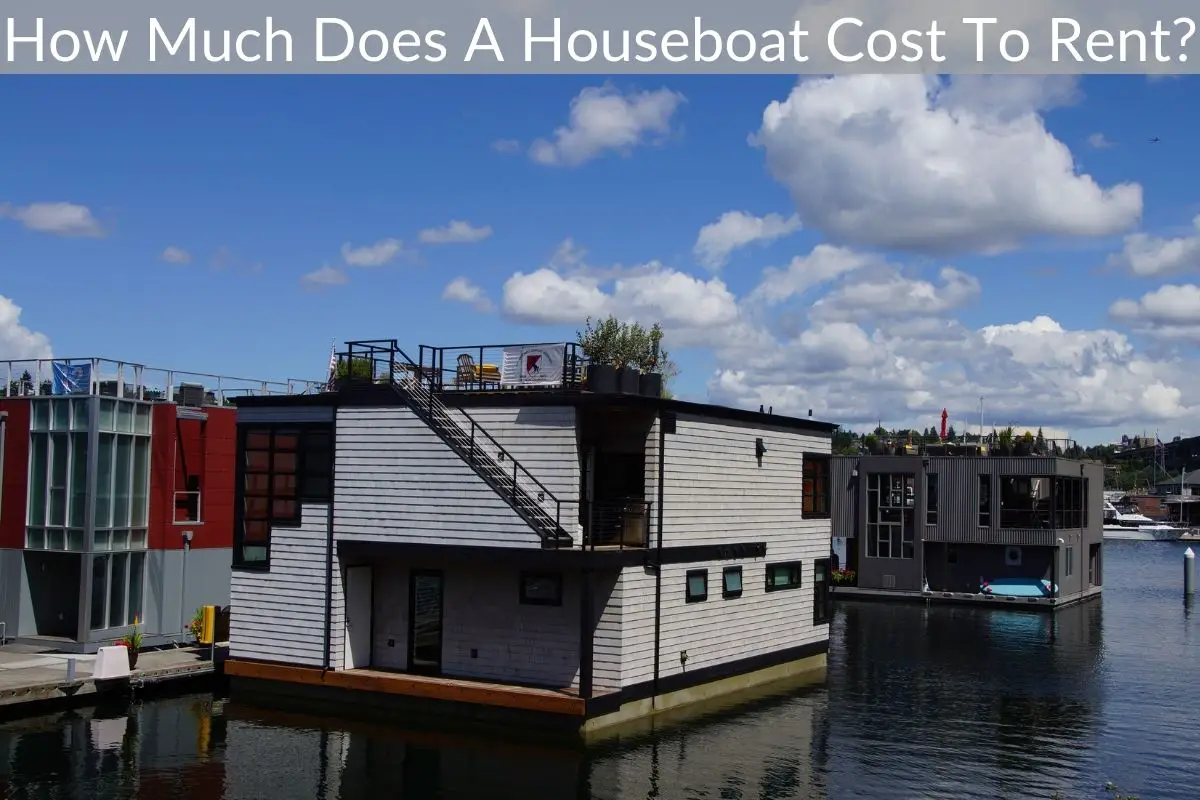The open waters are calling your name, and you’ve got your trusty Bass Tracker boat ready for adventure. But wait, have you ever given a thought about that humble piece of iron – your boat anchor?
*This post may contain affiliate links. As an Amazon Associate we earn from qualifying purchases.
As a seasoned seadog, let me tell ya, an anchor isn’t just a big hunk of metal, it’s as essential as the wind in your sails, or in your case, the roar of your Bass Tracker’s engine. Your anchor, my friend, is your ship’s best friend when the waters get a little too adventurous, and you need to hold your ground, or, in this case, water.
Let’s navigate through the wonderful world of anchors together. Arrrr you ready?
Why Choosing the Right Anchor Matters for Bass Tracker Boats
Anchors, like pirates’ parrots, come in all shapes and sizes, but not every feathered friend is going to be a good match. The same goes for your Bass Tracker.
Choosing the right anchor is like choosing the right hat. You wouldn’t wear a cowboy hat to a formal dinner, would ya? Just like you wouldn’t use a heavyweight anchor on your nimble Bass Tracker.
Choosing the right anchor isn’t just about aesthetics, it’s about safety and functionality too. Imagine you’ve found the perfect fishing spot, only for your anchor to slip and slide, dragging your boat with it.
That’s enough to get anyone’s gills in a twist. So remember, the right anchor for your Bass Tracker boat isn’t just a recommendation, it’s a must!
Understanding Different Types of Boat Anchors
Now, let’s take a deep dive into the sea of anchor types, and don’t worry, I promise to keep the sea puns to a minimum (or try to). Boat anchors come in various shapes and sizes, much like the sea creatures under your Bass Tracker.
- Mushroom Anchors: These bad boys are shaped like a, you guessed it, mushroom! The perfect anchor when you want to keep things light and easy, much like a casual day out fishing with the kiddos.
- Fluke Anchors: Resembling a grappling hook, these anchors love digging into sandy or muddy bottoms – much like my son, Jonathan, who can’t resist a mud pie.
- Plow Anchors: Designed like a farmer’s plow, these anchors are all about grip and holding power. They’re your go-to when the sea’s looking a bit grumpy.
- Grapnel Anchors: Resembling a climbing hook, these anchors are perfect for rocky bottoms. They’re like a mountain goat, always finding a footing even in the trickiest terrains.
Each type of anchor has its benefits and drawbacks, like characters in a maritime drama. Knowing them is half the battle, so let’s dive a bit deeper, shall we?
Mushroom Anchors: Are they Ideal for Bass Tracker Boats?
Picture this, my friends, the serene calm of the water, the gentle ripples, and the peaceful hum of your Bass Tracker boat. The anchor drops, you feel the light plonk of your mushroom anchor resting softly on the muddy bed.
Peaceful isn’t it?
The Mushroom anchor, much like its namesake, has a cap, a stem, and, well, that’s it! It’s a simple tool for a simple task.
Made to nestle comfortably in soft, low traction surfaces like mud or silt. If you’re into a peaceful cruise or some light fishing in a calm lake, this is your guy.
While they seem like the perfect fit, they do have their limitations:
- Weight: They rely on their weight more than anything, so they can be quite heavy. Hauling one in can feel like reeling in Moby Dick.
- Holding Power: Their holding power isn’t the greatest. In rougher conditions, they might just decide to take a little tour of the lake bed.
Just like my little Clara’s tricycle? It’s excellent, but only as long as she stays on the sidewalk.
Similarly, the mushroom anchor is great but best suited for specific conditions.
Fluke Anchors: The Perfect Match for Bass Trackers?
Ever tried getting an 8-year-old out of a mud pit? Well, fluke anchors are the same, minus the tantrums and plus the incredible grip.
Their design, like a grappling hook, digs into the soft, sandy, or muddy bottom like a treasure hunter.
Fluke anchors are lightweight and compact, but they make up for it with their robust design and holding power. These anchors are the sailboat’s favorite, but hey, your Bass Tracker might find a friend in them too.
Let’s weigh the anchor on the pros and cons:
Pros
- Compact and Light: They’re not going to break your back or your storage space.
- Great Holding Power: When these anchors dig in, they’re as stubborn as a mule.
Cons
- Dependant on the Bottom Type: They’re excellent at sandy or muddy bottoms but struggle with rocky ones. It’s like wearing ice-skates on a gravel road.
So, if your fishing adventures take you to softer lake bottoms and you want an anchor that doesn’t play hide-and-seek in your storage, fluke anchors might be your next best mate.
Considering Grapnel Anchors for Your Bass Tracker
Imagine a mountain goat, nimble and agile, capable of finding footing on the most precarious cliffs. Now give that goat a bath.
You’ve got a grapnel anchor! Built like a climbing hook, these anchors are excellent for rocky and uneven bottoms. Now, does that sound like the bottom your Bass Tracker is going to sit on? Let’s see!
Grapnel anchors are the versatile athletes of the anchor world. Light, compact, and pretty darn good at clinging onto things. My 5-year-old Clara’s fondness for hugging anything and everything comes to mind.
Like all things under the sun, they have their strengths and weaknesses.
Strengths
- Versatility: Whether it’s rocks, reefs, or wrecks, they grip on tight.
- Compactness: These anchors are small and foldable, making them perfect for boats with limited storage space.
Weaknesses
- Limited Holding Power: They’re not the strongest when it comes to holding power. Think of it more like a clingy cat rather than a bear hug.
- Difficulty in Retrieval: They can get stuck in rocks. And trust me, getting them out can be as challenging as getting a candy from a toddler.
So, is the grapnel anchor the perfect fit for your Bass Tracker? Well, if you’re setting sail towards rocky terrains, they’re worth considering!
Anchoring Accessories: Enhancing the Anchoring Experience
An anchor doesn’t work alone, just like I can’t keep the kids in check without a little help from cartoons and ice-cream. There are some crucial accessories that go hand in hand with your anchor, and I’m not talking about nautical-themed socks!
Let’s look at these unsung heroes that make anchoring a breeze:
- Anchor Ropes: The lifeline between your boat and anchor. Much like the leash keeps my enthusiastic golden retriever from chasing every squirrel he sees.
- Anchor Chains: Adds weight and helps the anchor dig in, much like how a good hearty meal settles a grumbling tummy.
- Shackles: They join the anchor to the chain. Think of it as the hand that introduces two best friends.
- Anchor Winch: A device that makes lifting your anchor as easy as pie. Now, who doesn’t like an easy pie?
Picking the Best Anchors for Bass Tracker Boats
You’ve sat through my sea shanties and sea-puns, so it’s about time I tell you what you came here for – which anchors are best for your Bass Tracker Boat.
Choosing an anchor is like finding the right dog breed. Do you want a playful Beagle or a sturdy St. Bernard? A light Greyhound or a loyal Labrador? Likewise, each anchor has its charm.
Let’s see which one might woo your Bass Tracker boat!
1. Fortress FX-7
The Fortress FX-7 is a fluke anchor that has all the characteristics of a potential mate for your Bass Tracker. Lightweight, strong, and rust-resistant.
This anchor doesn’t just dig into the seabed; it clings on for dear life.
Pros
- Exceptional Holding Power: This anchor has a knack for holding its ground, providing a holding power-to-weight ratio that’s simply unmatched.
- Rust-Resistant: Made of a high-tensile aluminum-magnesium alloy, this anchor doesn’t know the meaning of rust.
Cons
- Cost: Quality comes at a price, and the Fortress FX-7 is no different. But hey, it’s worth every penny, I’d say!
This Navy style anchor is a heavy-duty workhorse. The SeaSense Navy Anchor with its vinyl coating is as durable as they come, making it a robust contender for your Bass Tracker.
Pros
- Heavy-Duty: This anchor is for when you need something strong and reliable. It’s like the St. Bernard of anchors.
- Vinyl Coating: The vinyl coating protects the anchor from the elements, much like my favorite raincoat keeps me dry in a storm.
Cons
- Weight: While its weight is a pro in terms of holding power, it can be a bit hefty to handle, especially after a long day on the waters.
3. Extreme Max 3006.6563 BoatTector Anchor
The Extreme Max BoatTector is a grapnel anchor that’s as sturdy as it is versatile. If your Bass Tracker boat likes to flirt with different seabeds, this anchor might just be the one.
Pros
- Versatile: This anchor is a jack of all trades. It does well on all types of bottoms.
- Compact: With its foldable design, it takes up minimal space.
Cons
- Holding Power: Although versatile, it doesn’t offer the best holding power on softer bottoms.
There you have it, folks, three fantastic anchor options for your Bass Tracker boat. Remember, no anchor is perfect, and the best anchor for you ultimately depends on where you’re heading and what you’re expecting from your trip.
So weigh your anchor wisely!
Expert Tips for Anchoring Your Bass Tracker Boat
Now that you’ve got an anchor in mind, let’s talk about dropping it like it’s hot! Anchoring isn’t rocket science, but it isn’t as simple as ‘drop and forget’ either.
Trust me, it’s more like teaching my 8-year-old Jonathan to tie his shoelaces – it needs practice, patience, and a good sense of humor.
Let’s dive into some anchoring tips and tricks that will make you an anchoring maestro in no time.
1. Pick the Right Spot
Just like you wouldn’t set up a picnic in the middle of a football field, you shouldn’t drop your anchor just anywhere. Look for a spot that’s protected from the wind and waves. Remember, a little bit of planning can save a lot of hassle.
2. Check the Seabed
Not all anchors work well on all seabeds. So, always check the seabed type before dropping anchor. It’s like making sure you have the right shoes for the terrain – sneakers for pavements, boots for mountains, and flippers for, well, water!
3. Use Enough Rope
When it comes to anchor rope, more is more. A good rule of thumb is to use a length of rope that’s at least seven times the depth of the water. So if the water is 10 feet deep, you’ll need 70 feet of rope. It’s like making spaghetti – it’s always better to have too much than too little!
4. Secure your Anchor
Once you’ve dropped the anchor, make sure it’s dug in properly. How do you do this? Simply pull on the rope. If it doesn’t budge, you’re good to go! It’s like checking if the car door is locked – better safe than sorry.
5. Keep an Eye Out
Once you’re anchored, keep an eye on landmarks or use your GPS to make sure you’re not drifting. It’s a bit like keeping an eye on your kids at the park. You want them to have fun, but you also want them safe!
Conclusion: The Voyage Ends, but the Adventure Continues!
We’ve sailed across the seas of anchors, battled the waves of information, and anchored ourselves in knowledge. So, what’s the best anchor for a Bass Tracker boat?
The best anchor for a Bass Tracker boat depends largely on the kind of water bodies you frequent, the seabed type, and your personal preferences. However, three excellent choices are the Fortress FX-7, SeaSense Navy Anchor 20lb Vinyl Coated, and Extreme Max 3006.6563 BoatTector Anchor.
Each one has its unique advantages and is well suited for specific scenarios.
Now, let’s take a closer look at these anchors with a comparison table:
| Anchor | Best For | Pros | Cons |
|---|---|---|---|
| Fortress FX-7 | General Purpose, especially Sandy and Muddy bottoms | Exceptional holding power, rust-resistant | Higher cost |
| SeaSense Navy Anchor 20lb Vinyl Coated | Heavy-duty usage, stable in varied conditions | High durability, protective vinyl coating | Heavier weight might be challenging to handle |
| Extreme Max 3006.6563 BoatTector Anchor | Versatile seabeds, compact storage | Versatile use, compact and foldable | Less holding power on softer bottoms |
If you’re after a reliable, all-rounder anchor with excellent holding power and don’t mind investing a bit more, the Fortress FX-7 could be your best bet.
The SeaSense Navy Anchor is a fantastic heavy-duty option that offers great durability.
Finally, if your boating trips take you through diverse seabeds and storage space is a concern, the Extreme Max BoatTector Anchor, with its versatility and compactness, might just be the ideal anchor for you.

